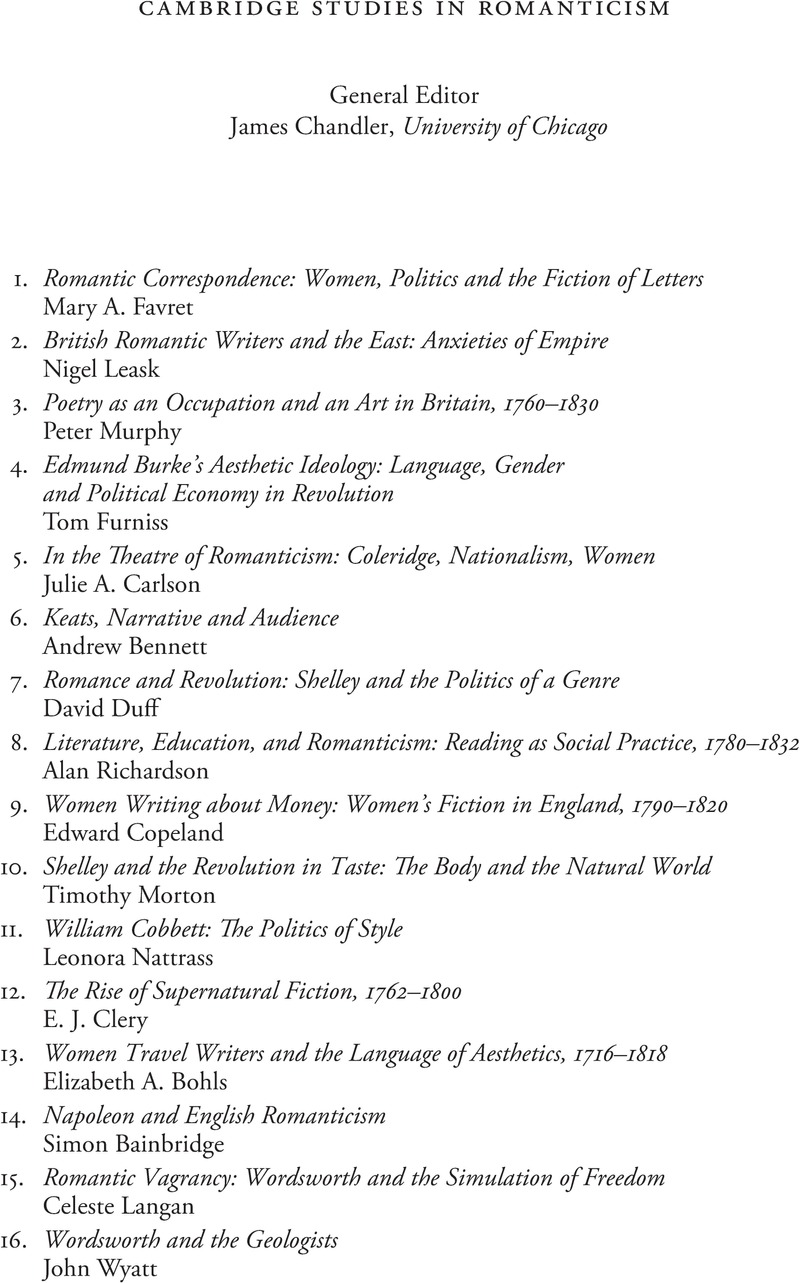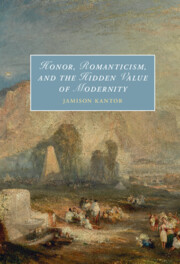Book contents
- Honor, Romanticism, and the Hidden Value of Modernity
- Cambridge Studies in Romanticism
- Honor, Romanticism, and the Hidden Value of Modernity
- Copyright page
- Contents
- Figures
- Acknowledgments
- Introduction
- Chapter 1 Soliloquies in Praise of Chivalry
- Interlude
- Chapter 2 “Say, What Is Honour?”
- Chapter 3 Full Faith and Credit
- Interlude
- Chapter 4 Black in Character as in Complexion
- Postlude
- Notes
- Bibliography
- Index
- Cambridge Studies in Romanticism
- References
Cambridge Studies in Romanticism
Published online by Cambridge University Press: 23 February 2023
- Honor, Romanticism, and the Hidden Value of Modernity
- Cambridge Studies in Romanticism
- Honor, Romanticism, and the Hidden Value of Modernity
- Copyright page
- Contents
- Figures
- Acknowledgments
- Introduction
- Chapter 1 Soliloquies in Praise of Chivalry
- Interlude
- Chapter 2 “Say, What Is Honour?”
- Chapter 3 Full Faith and Credit
- Interlude
- Chapter 4 Black in Character as in Complexion
- Postlude
- Notes
- Bibliography
- Index
- Cambridge Studies in Romanticism
- References
Summary

- Type
- Chapter
- Information
- Honor, Romanticism, and the Hidden Value of Modernity , pp. 196 - 202Publisher: Cambridge University PressPrint publication year: 2023



